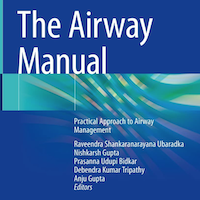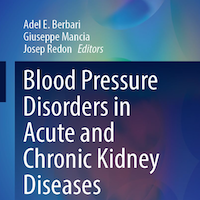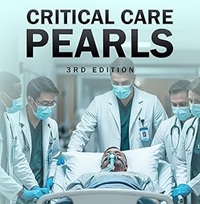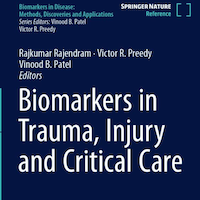Tag: mechanical ventilation
Balancing the Breath: Navigating the Brain-Lung Connection in Acute Brain Injury
This study explores the delicate tug-of-war between mechanical ventilation (MV) and outcomes for patients with Acute Brain Injury (ABI). The researchers highlight that the way we breathe for a patient can significantly influence... read more
Lost in Translation: Unmasking the Silent Struggle of Ineffective Ventilator Efforts
While identifying the subtle timing mismatches between a patient and a ventilator often requires specialized internal monitoring, clinicians can still spot major "asynchronies" by closely watching the flow and pressure curves... read more
The Kidney Crisis: Acute Injury as a Predictor of ICU Survival
This extensive population-level study from Ontario, Canada, analyzed over 480,000 adult ICU admissions to clarify the relationship between Acute Kidney Injury (AKI) and patient outcomes. By utilizing outpatient baseline data... read more
Less Steroids, Better Outcomes: High-Dose Corticosteroids Harm ICU COPD Patients
A large pharmacoepidemiologic cohort study of over 17,000 US patients admitted directly to ICUs for acute exacerbations of COPD revealed that two-thirds received high-dose systemic corticosteroids (>240 mg/day methylprednisolone... read more
Triumph Over Sepsis: Dramatic Mortality Decline in ANZ ICUs, With a Post-2020 Rebound
In a comprehensive analysis of over 2.9 million ICU admissions across 219 Australian and New Zealand intensive care units from 2000 to mid-2023, in-hospital mortality for adult patients with sepsis (per Sepsis-3 criteria)... read more
Beyond the Basics: New Respiratory Markers Predict Extubation Failure
A multicenter study focused on high-risk patients who successfully passed a conventional 30-minute Spontaneous Breathing Trial (SBT) found that standard measures alone are insufficient to predict extubation failure. Extubation... read more
Cost-Effective Care: Pantoprazole Saves Lives and Dollars in the ICU
A groundbreaking study spearheaded by researchers at McMaster University has confirmed that the widespread use of the inexpensive medication pantoprazole not only prevents life-threatening upper gastrointestinal (GI) bleeding... read more
Breadth of Antibiotics Trumps Dose and Duration in Driving ICU Superbugs
In a large prospective cohort study across four ICUs (422 patients enrolled from March 2024 to January 2025), 35.8% of patients acquired carbapenem-resistant Gram-negative bacteria (CR-GNB) during their stay. Using sophisticated... read more
Monitoring Mechanical Ventilation Using Ventilator Waveforms
This book discusses the interpretation of mechanical ventilator waveforms. Each page shows a screenshot from a real patient and explains one or two messages. It starts with basic information about the waveforms and goes... read more

Less Sedation, Shorter Stays: The Benefit of Analgesia-Based Protocols
A retrospective study conducted in a 24-bed medical Intensive Care Unit (ICU) compared patient outcomes before and after implementing a new analgesia-based sedation protocol. The research included 79 patients managed... read more
The Pharmacist’s Expanded Role in Critical Care Medicine: A Comprehensive Guide for Practitioners and Trainees
This new book will serve as a useful resource for all pharmacists involved in the management of critically ill patients, whatever their level of experience and training. There are few textbooks aimed specifically at critical... read more

Move Early, Recover Faster: Early Mobilization Slashes ICU Stays Without Adding Risk
An updated systematic review and meta-analysis of 16 high-quality randomized trials (2,385 ICU patients) delivers a clear verdict: starting mobilization within 72 hours of admission is not only safe but powerfully effective.... read more
Ventilator Management: A Pre-Hospital Perspective
The goal of this book is to provide the most up to date information on mechanical ventilation based on current research, evidence based practice and my experiences as a flight paramedic and educator. A comprehensive look... read more

Optimizing Sedation & Analgesia in the ICU, An Issue of Critical Care Clinics, E-Book (The Clinics: Internal Medicine)
In this issue of Critical Care Clinics, guest editors Drs. Yahya Shehabi, Joanna L. Stollings, and Timothy D. Gerard bring their considerable expertise to the topic of Optimizing Sedation and Analgesia in the ICU. Top... read more

Lung Protection Saves Brains: Low Tidal Volume Tied to Lower Mortality
This international cohort study involving 1,510 patients with Acute Brain Injury (ABI) across 73 ICUs investigated the impact of Low-Tidal-Volume Ventilation (LTVV) on outcomes. In this group, where the most common etiology... read more
Restoring Voices: Safety and Success of In-Line Speaking Valves
A retrospective cohort study evaluated the safety and tolerability of placing a speaking valve directly in-line with the ventilator circuit for critically ill, tracheostomized patients who were difficult to wean from mechanical... read more
Non-invasive Mechanical Ventilation in Critical Care, Anesthesiology and Palliative Care
This book provides an easy, modern and practical way for physicians to approach the world of noninvasive mechanical ventilation (NIMV). Noninvasive ventilation is well-established and increasingly used in routine clinical... read more

PEEP’s Hidden Impact: The Rise in Mechanical Power
This study investigated how a stepwise increase in Positive End-Expiratory Pressure (PEEP) affects respiratory mechanics and mechanical power in mechanically ventilated adults. Using an incremental titration strategy,... read more
Mastering Non-Invasive Respiratory Support: A Guide to Success
This clinical guide provides an overview of non-invasive respiratory support (NIRS) techniques—including High-Flow Nasal Therapy (HFNT), Continuous Positive Airway Pressure (CPAP), and Bilevel Positive Airway Pressure (BiPAP)-for... read more
ICU Alert: Unraveling Mortality in Obstructive Pyelonephritis
This retrospective multicenter study investigated in-hospital mortality among 483 patients admitted to the ICU (8 centers) over a decade due to obstructive pyelonephritis, a severe condition often caused by kidney stones,... read more
Mechanical Ventilation in Patient with Respiratory Failure
This handbook covers the principles of mechanical ventilation, making them easy to understand and apply in clinical settings. Presented in an accessible style and supplemented by a wealth of illustrations and graphs, it includes... read more

Scarred Lungs: Identifying Fibrosis Risk After COVID-19 ARDS
This substudy of the large, multicenter RECOVIDS cohort investigated the predictive factors for developing fibrotic changes (FC) in survivors of COVID-19-related Acute Respiratory Distress Syndrome (ARDS) six months after... read more









